Why The Fate of Indie Music Venues Should Matter to Everyone, & How We Can Help
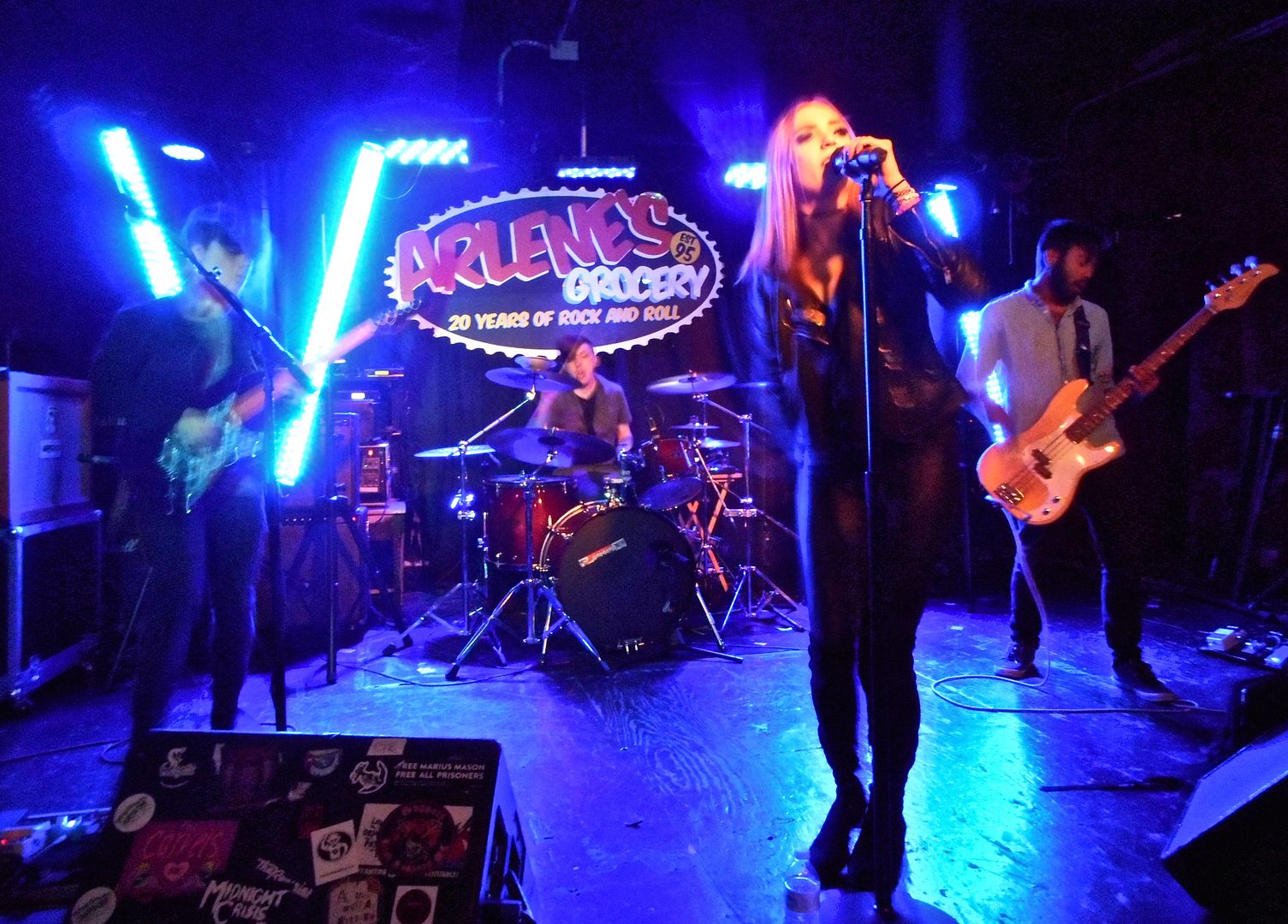
VISTA at Arlene’s Grocery
Since the coronavirus hit the U.S., and social distancing and isolation began, many businesses have been forced to temporarily close their doors, and indie music venues – with their typical crowds of anywhere from 50 to 200 people – were among the first of these closures.
What some people may not realize is every night that indie music venues have their doors closed, and no one on stage, has a huge effect on the music world as a whole.
You may be thinking, “How can the closing of these venues have an affect on anything other than indie music?”
Point blank – Lady Gaga doesn’t exist if Stefani Germanotta doesn’t have The Bitter End.
Musicians, however, are just one aspect of a venue, as indie music venues are more than simply a place to see a show, they’re small businesses, small businesses made up of very passionate people.
“What the general public doesn’t see,” explains Dennis Allen Jr., backline manager for All Tech Sound and Production Services Group, “is the people behind the venue.”
We’re On Each Other’s Team
Mark Woodbridge, talent buyer for Arlene’s Grocery in NYC, says that when it comes to the venue he works for, the team is a large one. “Bartenders, bar-backs, GM, owner, talent buyer, production manager, social media manager, sound engineer, and security – altogether the staff is around 20+ people.”
Sadly, he says, “Of that, the only jobs that remain from this closure are two – GM, and talent buyer.”
According to Woodbridge, the numbers are grim all around. “There are many venues in Manhattan having to cut upwards of 90-95% of their staff during this time.”
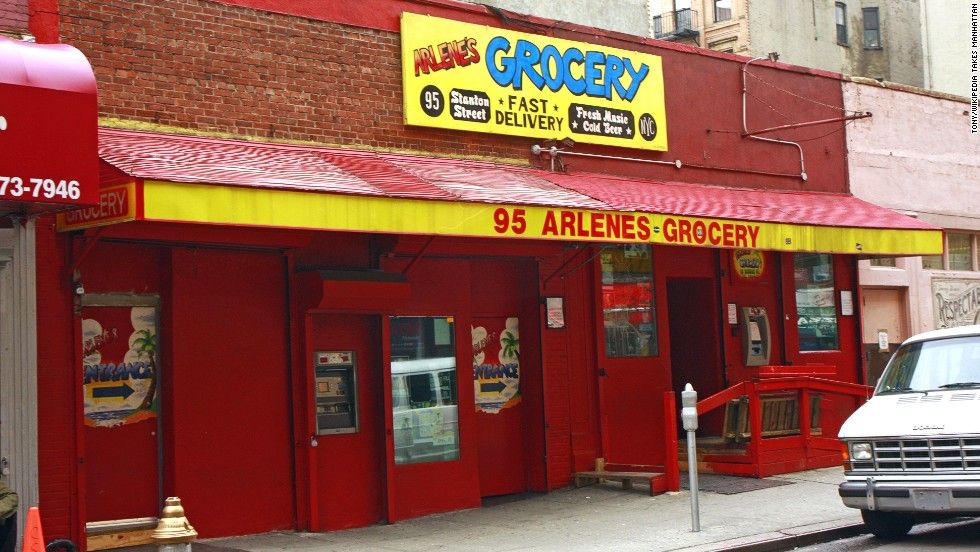
While most of the people who’ve lost their jobs should have those jobs waiting for them when doors eventually reopen – or, in the case of some venues, if doors reopen – there’s little they can do at the moment for money.
Garrick Perry (aka Force), manager and booking agent for Bishop’s Lounge in Northampton, MA explains, “The fact that many people on the indie side of the industry are contract workers is a real cause for concern … because those are the exact workers who don’t have any real financial recourse.”
If the old saying that “money makes the world go round” is true, for many in the music industry the world has come to a screeching halt.
A Hazy Future
Even with forced closures only in their second week, William Vega, owner and manager of The Acoustic in Bridgeport, CT says his level of concern regarding the future of many venues is already quite high. “It’s a really tough industry,” he says, “we’ve been here for 20 years, which is almost unheard of, let alone for a club our size. This epidemic could put many venues, studios, bands, etc., out of business.”
Vega continued, adding, “Small independently run businesses like ours really rely on the steady flow of funds to pay bills like rent/utilities/insurance/inventory/patrol, and when that suddenly stops like it has, all of the sudden bills that are rolling in stack on top of the last ones and very quickly it puts us in a tough spot.”
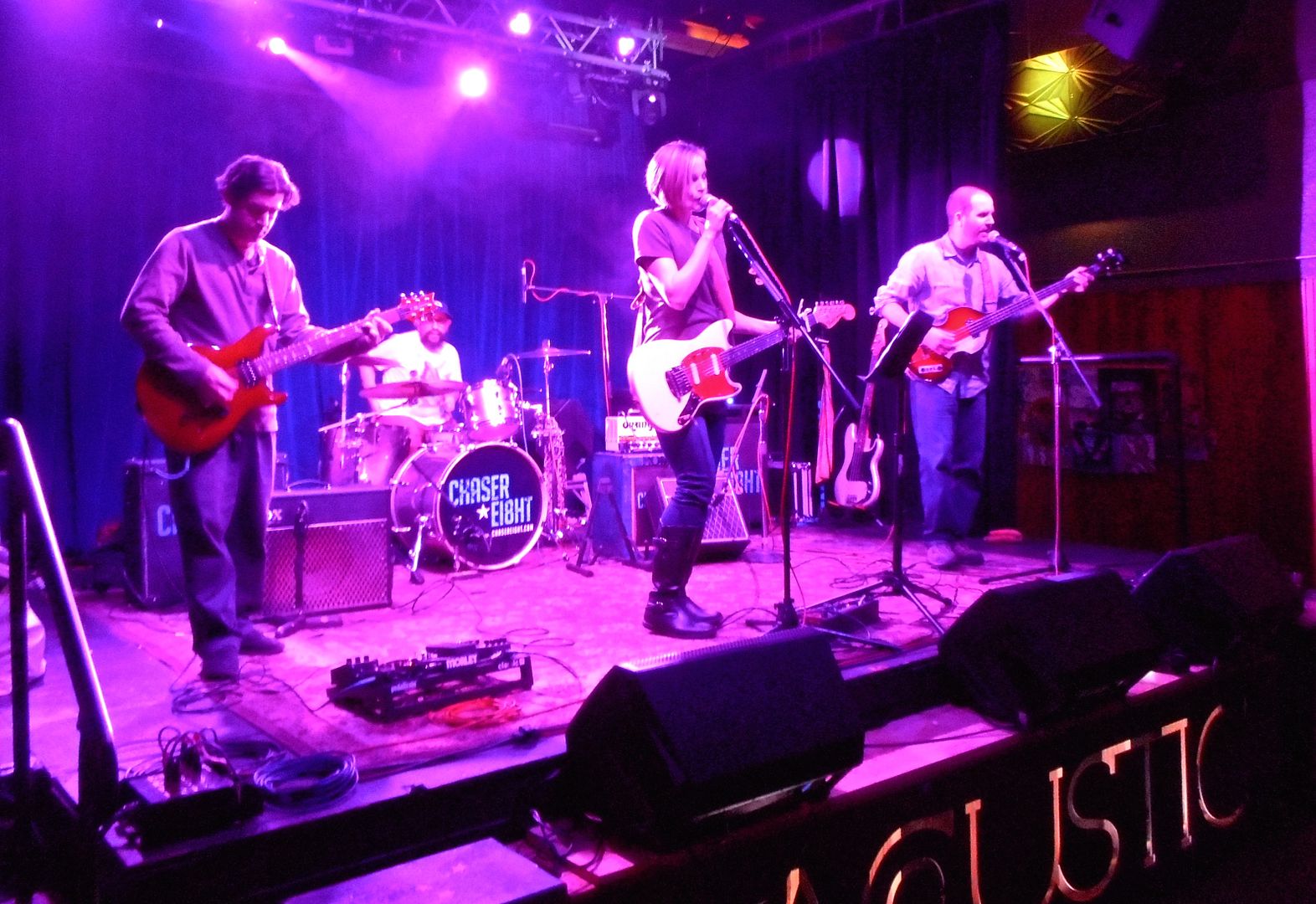
Audio Jane at The Acoustic (with Chaser Eight’s drums)
Woodbridge shares this concern, saying, “The local scene could be wiped away, and bands will break up, if this virus wraps us all up for many more months on end. Financially, bands who are touring regularly have a lot of overhead to cover – van, insurance, merch, etc. – that they are sitting on while they aren’t able to be touring.”
Perry adds that not only is he, “quite nervous that many small indie clubs will not make it out the other side of this,” he says that even the ones that do open their doors again could face an uphill climb upon reopening. “I worry that even when clubs open, and music events begin happening again, there will be a number of people who are averse to gathering in large groups for quite some time.”
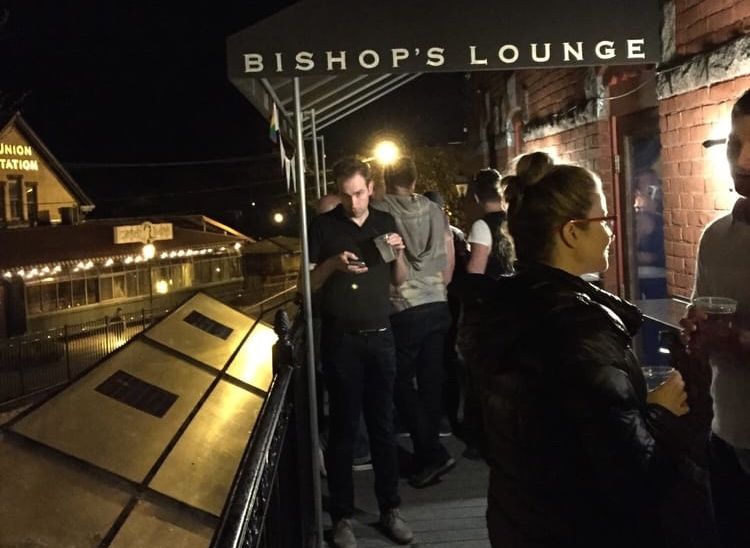
Bad Timing
It’s never a good time for a worldwide pandemic, but for the music industry the timing of the spread of the coronavirus couldn’t have possibly been worse.
Perry explains the especially huge negative impact, saying, “I believe one of the things people don’t really understand is how important this part of the music season is for the industry. We were just coming out of the slowest time for musicians and clubs because of New Year’s resolutions to spend less, lack of funds after the holidays, the weather – especially in New England – and other factors. Spring into summer is when festivals normally start up and the real touring kicks into gear … While it might seem easy to reschedule a show, it is much more complicated to juggle schedules and move these events, so many of these festivals and gatherings just won’t happen this year, and that revenue cannot be replaced.”
Finding A Way For Some Shows To Go On
During this confusing time, venues and artists share a common ideology – the show must go on … somehow.
While festivals can’t be re-booked, artists are live-streaming shows from their living rooms, and in the case of The Acoustic, this past Saturday Vega had a closed door, empty venue show, featuring The Breakfast.
“We are working on bringing some shows to the people since they can’t come to us,” he explains, adding, “if people would like to contribute via Venmo or PayPal, they can.”
Perry loves seeing artists and venues embracing this idea, saying, “People are really pushing the envelope on ‘live’ streaming options, and a ton of great content is being created. I think the best case is venues and artists learn as much as they can, and begin to incorporate some of these streaming options more seamlessly once venues reopen.”
What Fans Can Do To Help
When it comes to helping your favorite indie music venues survive, Woodbridge says, “Music fans can support most venues right now by donating – they’ve all posted about it – or even buying merch from the venue, or buying a gift card.”
Allen adds, “Something that concert ticket buyers can do is instead of calling and asking for a refund for tickets, donate the money back to the venue. This will help more than you can imagine.”
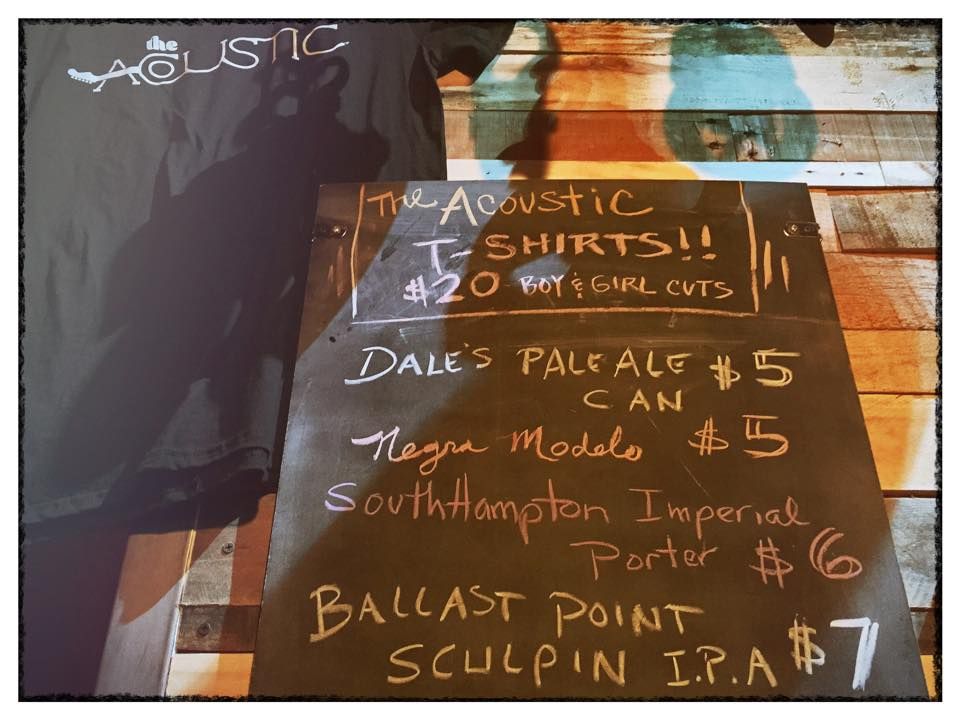
Merch and beer at The Acoustic
If you’re looking for more ways to help, Perry says, “There are a number of nonprofits and Emergency Assistance Programs popping up to provide relief. I’ve seen some dedicated to bartenders, musicians, and other industry workers” (Billboard has a continually updated list of these programs).
He adds, “Many folks who work in the industry are artists in their own right … For instance, I not only run Bishop’s Lounge, but I regularly perform in two regional bands – The Alchemystics, and The Problemaddicts – and most of my staff also perform in local bands. We’ve all been working on ways to stream, collaborate and generate funds during these times of separation. I suggest you check in with your favorite bars and staff and see what is the best way to help … the occasional few bucks from Venmo or PayPal can go a long way.”
When Normalcy Returns
Here’s the good news – at some point in the near future we will be free to congregate again, and life will get back to something that resembles normal. When that time comes, Perry hopes all of the isolation everyone has endured will inspire folks to remember the joys of going out.
“I think we need to get back to the times when going out to shows was more of an event. With our constant access to streaming albums, social media, and binge worthy (television) shows, the act of going out to the club has been diminishing for years. Hopefully once all the social distancing is done we can get back to coming together as a community.”
How can we accomplish this? Perry has some ideas – “Plan reunions with your friends. Go and see that band you haven’t seen in a few years because things have been hectic. Take a chance and see a band you’ve never seen before.”
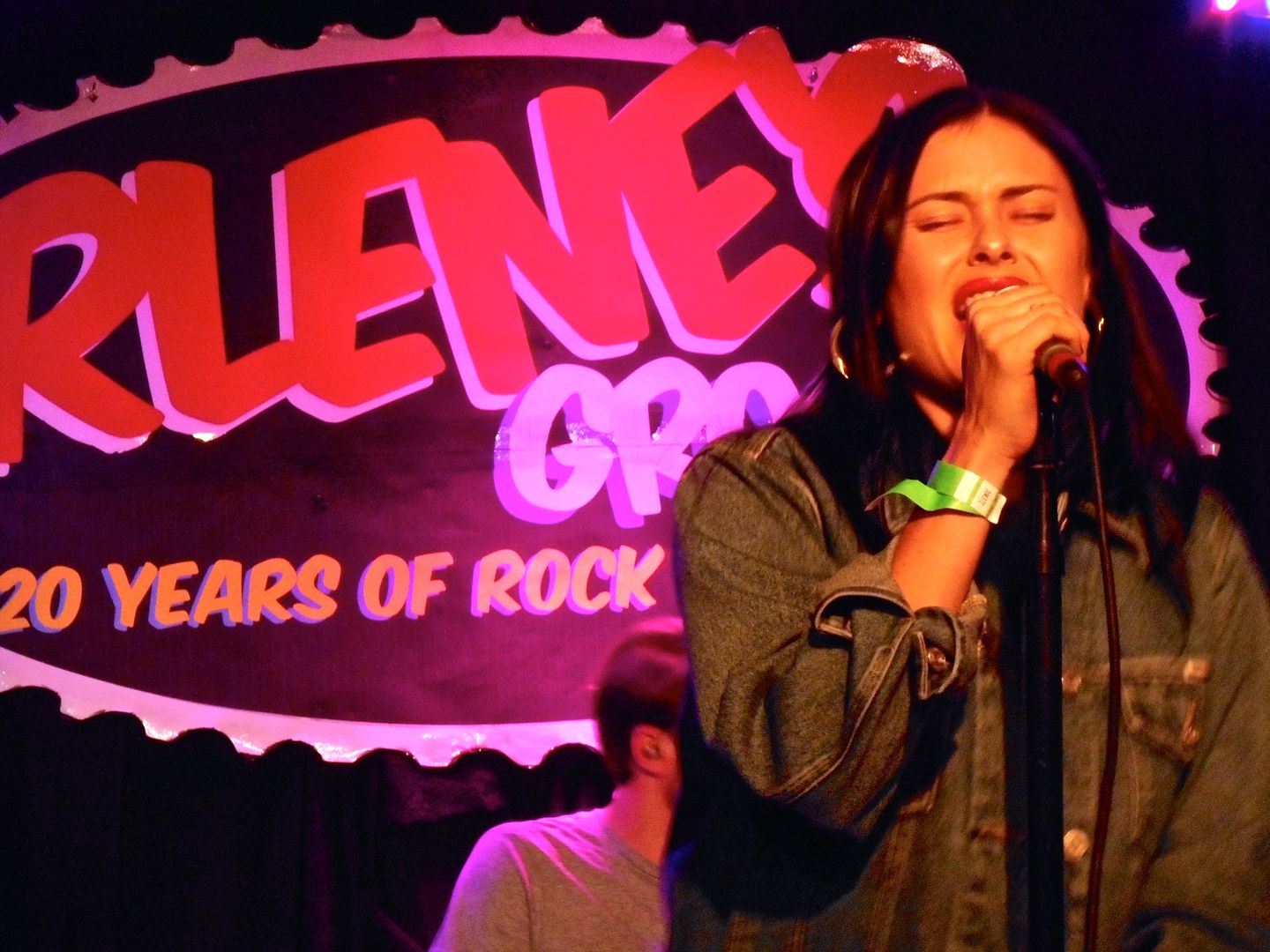
Alexandra Amor of Young Thieves at Arlene’s Grocery
Once you’re at a show, Allen recommends supporting in any way possible, saying, “Tip better than you ever have, buy the t-shirt, buy the band’s merch.” Perhaps most importantly, however, he says, “Bring new people to your favorite spots. It’s all about getting everyone back together and helping those who are there in support.”
Perry adds there’s one more thing we can do for the venue’s staff, the passionate people who form like Voltron to make everything happen, “Tell folks working these shows how much you appreciate them. Everyone from security to the stage could definitely use a verbal high five after these dark days.”
Summing up the ultimate goal for post-coronavirus nightlife, Vega says, “Hopefully the public will be ready to PARTY!”

Comments